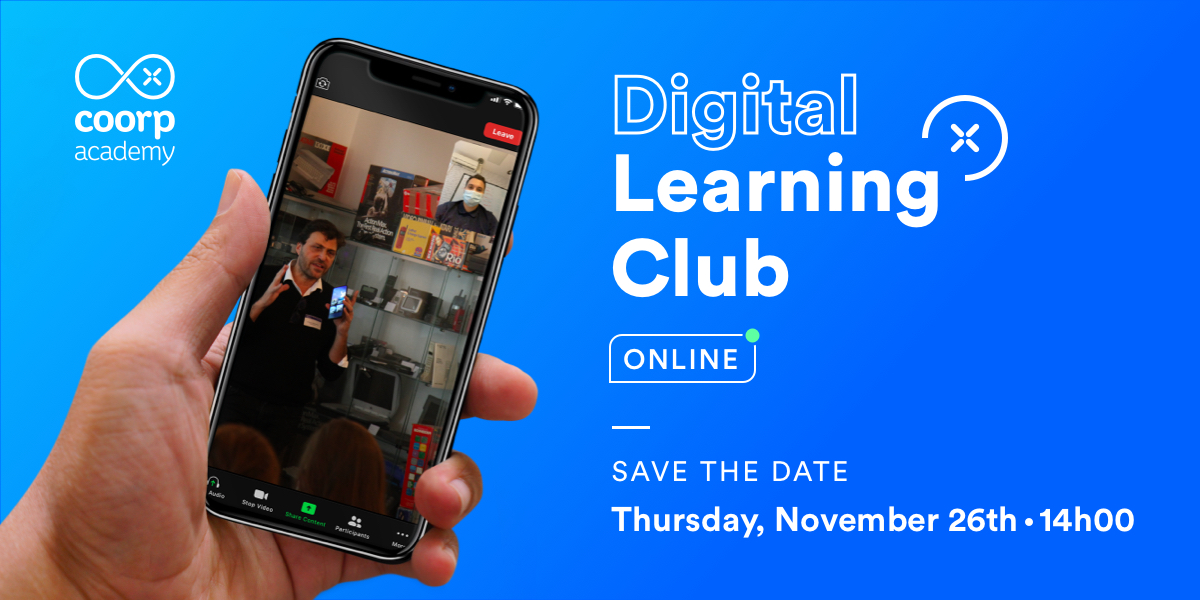Following the pandemic, one out of three companies in France stated that they increased their budget dedicated to digital transformation, according to a study released by Twilio on companies’ digital transformation and their customer engagement strategies. Affected by the COVID-19 crisis, digital transformation is now more than ever a priority for organizations if they want to develop serenely and be ready for the future, even more uncertain than today. Although it is not the only lever for organizations’ transformation, it has a lasting impact on behavior and shapes new processes, as it profoundly changes our habits.
Omnipresent both in our personal lives and in our professional environment, digital tools are growing at a rapid pace, sometimes much more rapidly than their uses. Here lies the complexity of digital transformation: how to integrate and adopt innovative but constantly evolving tools?
As the pandemic taught us, it is essential to prepare for major upheavals before they occur, so as not to be caught short. In 2025, a revolution will disrupt the job market. The digital aspect of companies will be decisive in the face of new challenges. Projections made by the World Economic Forum’s “Future of Jobs” 2020 report allow us to define which best practices to adopt and the skills to develop.
What is digital transformation in 2021?
Cloud, e-commerce, social networks, Zoom or data, blockchain, automation: you already know digital tools. Digital transformation is the process of integrating these technologies into all the company’s activities to improve its performance. Transitioning to digital also involves adaptation to new uses, for example, those of new consumers, which are rapidly developing.
Many think digital transformation resumes to implementing digital processes in the company, but how can we ensure they are understood and anchored in behaviors? Guiding the digital transformation is mainly leading the employees on the handling and understanding of these digital tools. Involving collaborators in change management and improving their ability to adapt is key for any major transformation to be successful. Indeed, when facing changes, agility and adaptation are fundamental qualities. This is where the HR function is decisive to drive their organization’s digital transformation.
How to become a digital employee?
The “Future of Jobs” 2020 edition report published by the World Economic Forum highlights this: the trend has been towards digitalization for several years and it is now a top priority for companies. The Twilio survey states that globally, 97% of business leaders believe the pandemic has sped up the digital transformation of their organization. It’s a fact: businesses are not done with digitalization.
The interest of companies to invest in data encryption recently emerged. Indeed, digitalization also comes with its risks, and preventing them is an essential step to complete this transition to digital tools.
The Future of Jobs report reveals a list of 10 key skills to develop for 2025, which you can find here. In this list, 3 skills are crucial for the digital transformation of organizations. As stated before, this transformation is essentially about the employees who compose it, or rather, their ability to adapt to it.
As the survey shows, companies plan to restructure their workforce in response to new technologies. What are the 3 key skills to guide the digital transformation of companies and employees?
N°1 Technology use, monitoring, and control
Digital tools can sometimes be complex to get used to, especially when they change our habits. The WEF survey results show that skill shortages in the local labor market and the inability to attract the right talents remain among the top barriers to technology adoption.
It is crucial to learn how to use new digital technologies and understand how they work, to earn their tangible benefits. Lacking this ability, the adoption of new technologies is slower, globally affecting the speed at which an organization transforms.
Some skills that come with digital transformation, often very technical, are so-called “hard skills” that require a computer or very specific, scientific knowledge. In concrete terms, if we all use and take advantage of the disposable technologies, then we are collectively developing towards a more digital and agile company. Training can also focus on soft skills, to promote agility and adaptation, and becoming more resilient while facing unexpected changes! As an example, cybersecurity, a digital challenge that concerns not only engineers, or big data, which is also part of the digital revolution, if the entire company knows how to benefit from it.
To better understand the scale of the digital revolution, learn to anticipate the tomorrow’s world :
Preparing for tomorrow’s world
Develop your agility:
Adopt an agile mindset
N° 2 Technology design and programming
The WEF report figures that executives face challenges while recruiting talent that specializes in AI, machine learning, software development, and applications. To enable a company to take full advantage of the potential that new technologies bring, we must set them up first.
By 2025, the digitalization of organizations will speed up and the availability of new digital tools will increase. To drive this transformation, technology design and programming skills will gain value. It’s mathematical. If you decide to use more tools, you also need to increase the number of people needed to implement them. And as technology expands and becomes more sophisticated, it also becomes more complex to design.
However, companies should not fall into the following trap: thinking that digital transformation solely relies on the recruitment of technology design and programming profiles. As previously mentioned, the real challenge lies in the general understanding of these technologies by all employees, to move towards a global, concrete, and collective change. To instill this idea of change, acculturation of the organization’s key players is the first step. Digital acculturation means understanding the issues it engenders and better transmitting them to all the collaborators. Beyond this first stage, digital dexterity plays a crucial role. It refers to the employees’ desire and ability to take on existing and emerging technologies to improve their performance. A collective attitude motivated by a genuine desire to understand makes all the difference as it allows employees to take the measure of the changes digital transition implies.
To start acculturation to digital tools:
AI and cognitive technologies
N°3 Resilience, stress tolerance, and flexibility
Resilience, stress tolerance, and flexibility are essential “soft” skills to help people understand new tools.
New technologies, and any change generally, can be perceived as an obstacle for employees. Therefore resilience, i.e. the ability of a person or a group to project themselves into the future and to evolve despite difficulties, is crucial to digital transformation. These difficulties are also a source of concern but will be easily overcome if employees learn to develop a good tolerance for stress and unexpected situations.
To develop resilience and succeed in overcoming individual or collective obstacles:
Resilience
Digital learning, the primary tool for digital transformation?
Data from the report’s survey shows the importance of training to face the future of the job market. Indeed, mastering key competencies will allow collaborators to be more productive in the long term. To address this issue, employers investigate employees’ training, and it’s already going digital! The number of employers offering digital learning opportunities to their employees will increase fivefold by 2025, according to the survey. Although companies say that by then, the in-house department will deliver 39% of training, e-learning platforms will still supplement it for 16% of training. Digital training is therefore constantly growing and ensuring employees’ skills development.
The digital transformation of companies also involves the digitalization of training, accessible to as many people as possible, adapted to each, and engaging for all. To quote the economist Klaus Schwab, founder and executive chair of the WEF: “the same technological disruption that is transforming jobs can also provide the key to creating them – and help us gain new skills”. The tools are at our disposal, it’s just up to us to use them intelligently so we can unleash the human potential already present in our organizations.
Unlock the human potential of your business:
All courses




